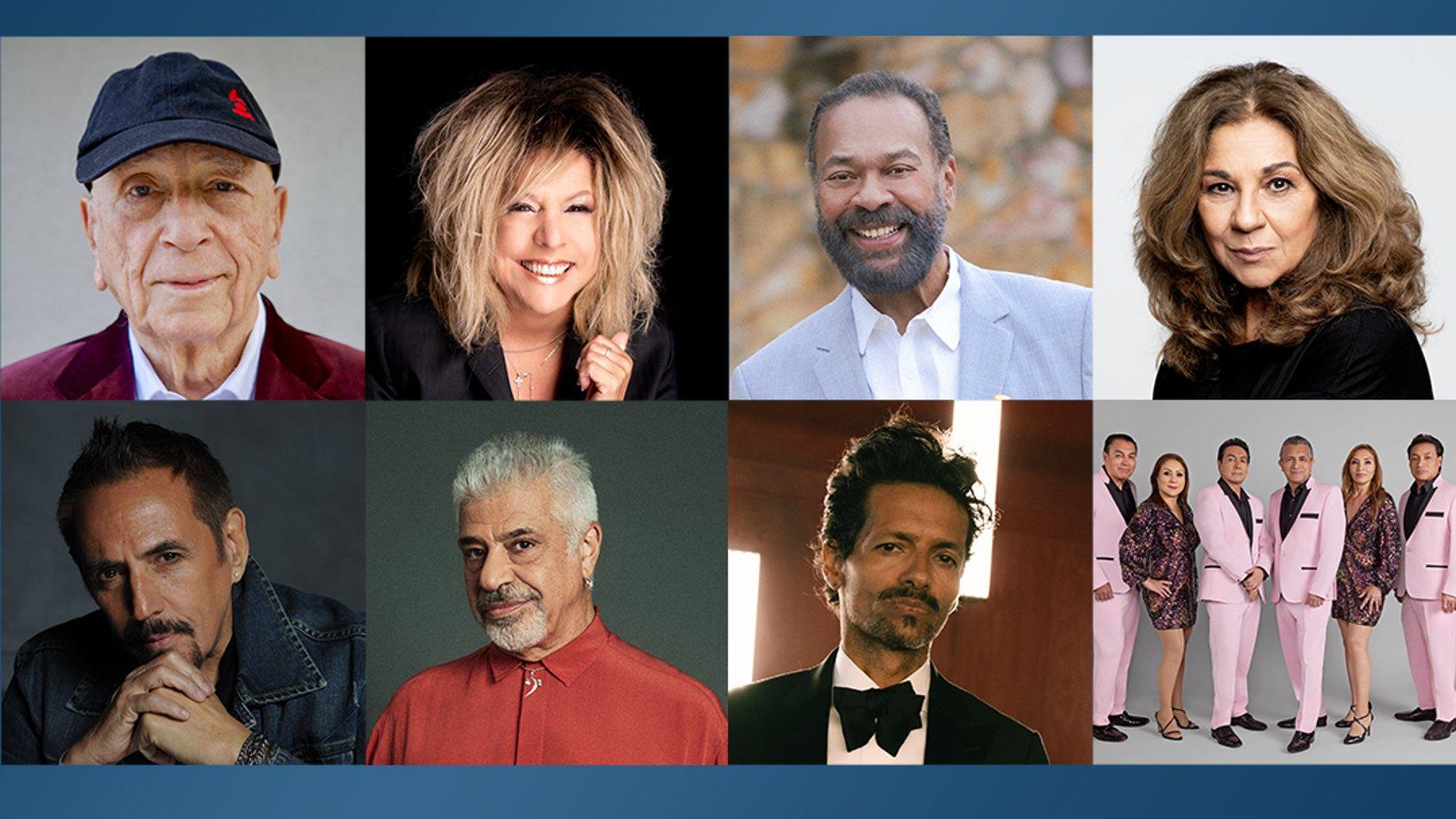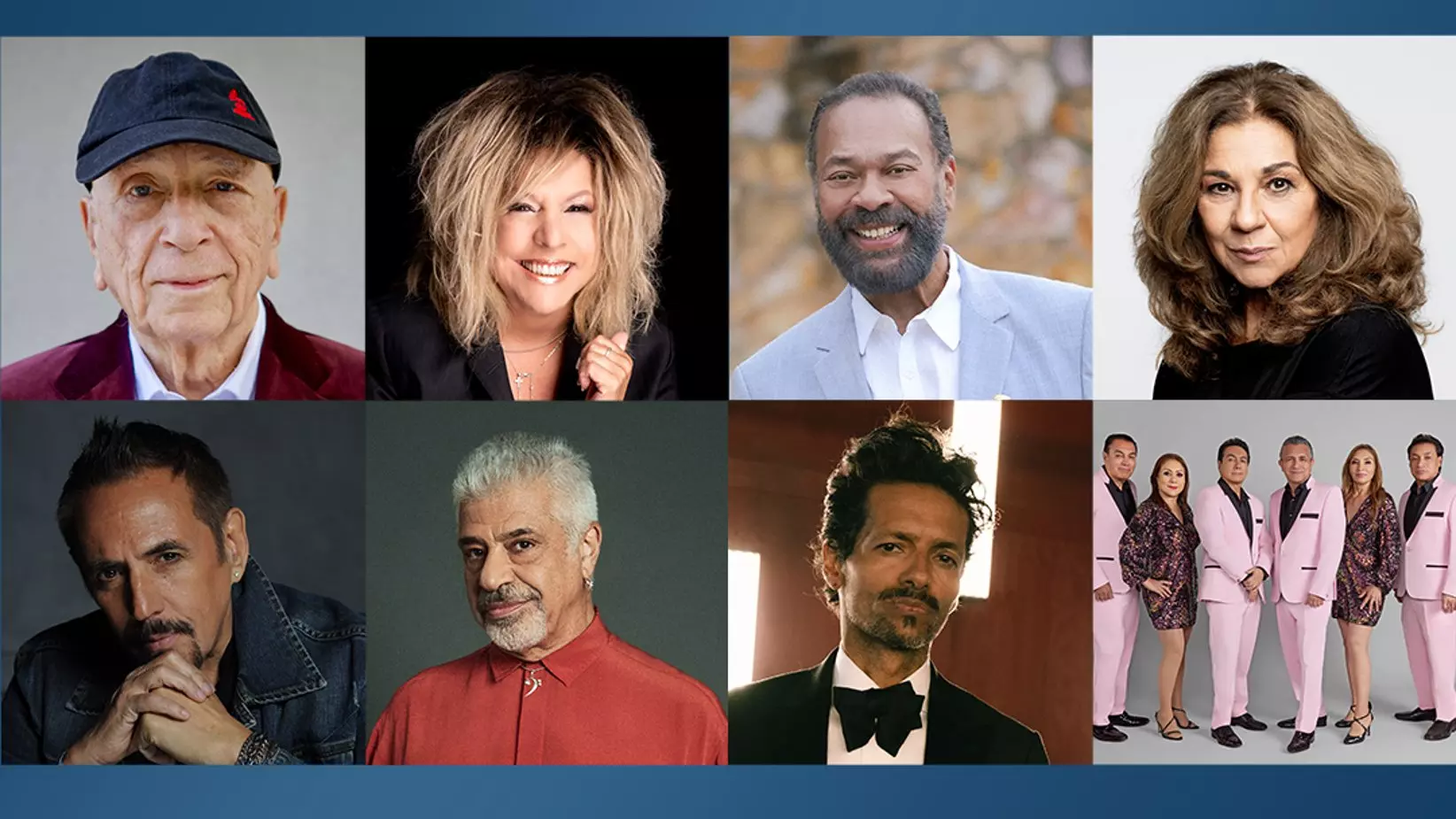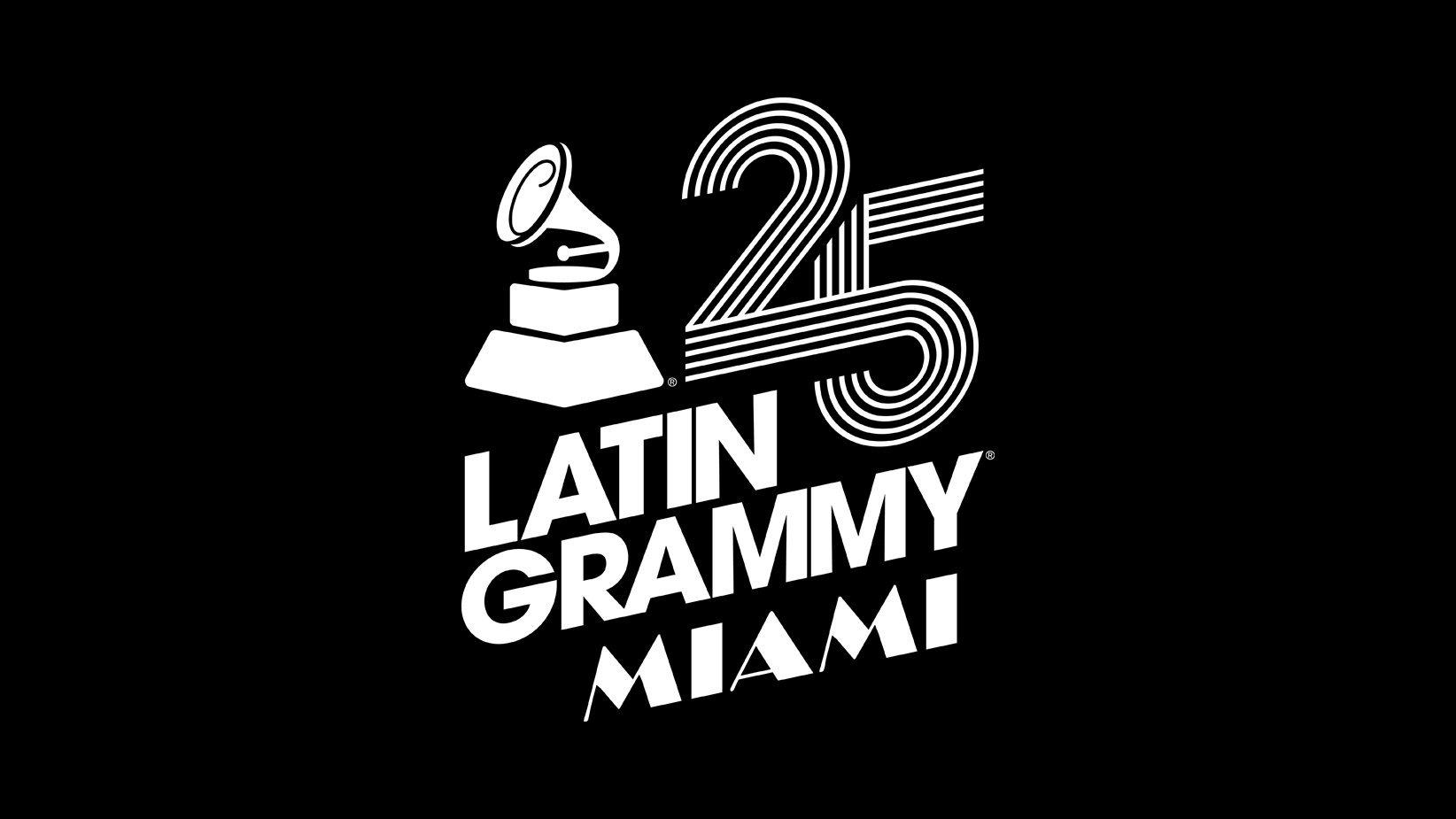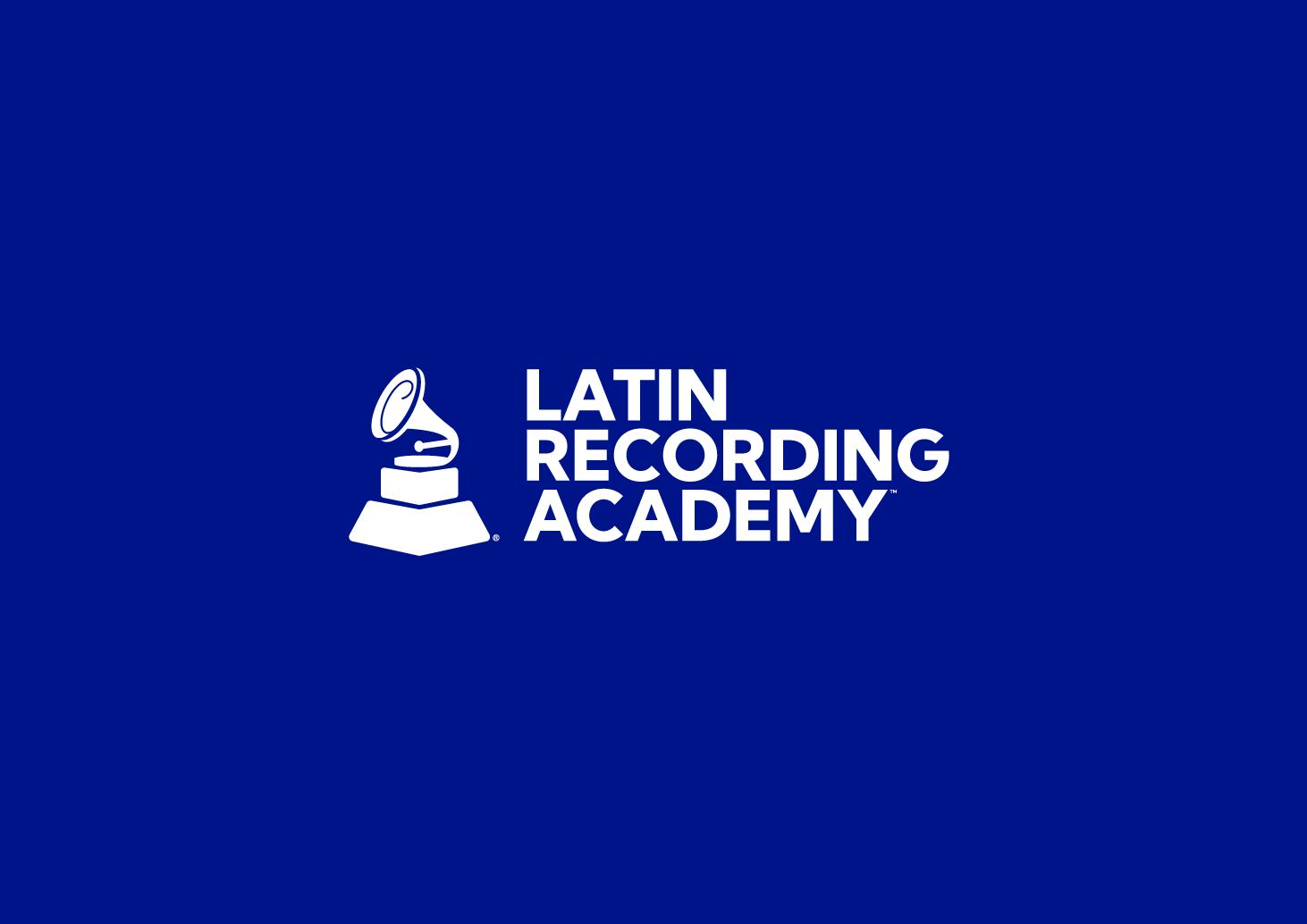Photo courtesy of the Latin Recording Academy

list
2023 Latin GRAMMYs Explained: 4 Reasons To Be Excited About The New Categories & Changes
The Latin Recording Academy has announced three new categories to be introduced at the 24th Annual Latin GRAMMYs, as well as a new Field and other amendments. Here are four key takeaways to get you excited for the upcoming Latin GRAMMYs changes.
In a demonstration of its commitment to advancing the ever-changing musical landscape, the Latin Recording Academy has announced several major developments to be introduced at the upcoming 2023 Latin GRAMMYs, officially known as the 24th Annual Latin GRAMMYs, which take place this November, including the addition of three new categories and a new Field. (The eligibility period for the 24th Annual Latin GRAMMYs is Wednesday, June 1, 2022 – Wednesday, May 31, 2023.)
These include: the launches of the Best Songwriter Of The Year category and the coinciding Songwriting Field; the Best Singer-Songwriter Song category; and the Best Portuguese-Language Urban Performance category. The Latin Recording Academy has also made amendments to several existing categories, including Album Of The Year, Song categories and Best Engineered Album.
While the news of these changes alone is monumental, it begs two questions: What do they signify for the Latin Recording Academy and the wider Latin music industry? And what will they ultimately lead to?
Firstly, introducing and awarding new categories allows the Latin Recording Academy to celebrate more artists and creators who are evolving genres and creating new, boundary-pushing sounds.
"The Latin music industry is very much alive and creating," Luis Dousdebes, the Chief Awards, Membership & Preservation Officer at the Latin Recording Academy, tells GRAMMY.com. "When we are awarding something really good to this community of artists and creators, they want to participate — and then they want to be part of the Latin Academy."
Secondly, by reaching new artist, producer and creator communities around the world, the Latin Recording Academy is diversifying its global base of members and the creators it celebrates at the annual Latin GRAMMYs, while also expanding its wider mission of elevating Latin music on a global scale.
"[We're] bringing more artist and creator communities to the process," Dousdebes reflects, "giving more inclusion to everyone who needs to be recognized; we're very excited about that potential."
Below, read some key takeaways explaining what these changes and amendments will mean for the 2023 Latin GRAMMYs and beyond.
Songwriters & The Art Of Songwriting Are Being Elevated
While the Latin Recording Academy has honored producers and artists with Latin GRAMMYs since its inception, songwriters are getting two much-deserved, standalone categories from here on out: Best Songwriter Of The Year and Best Singer-Songwriter Song.
The Best Songwriter Of The Year award, which is part of the newly created Songwriting Field, recognizes the written excellence, profession and art of songwriting.
Likewise, the Best Singer-Songwriter Song award, which lives within the Singer-Songwriter Field, honors singles or tracks from a Singer-Songwriter Album competing in the Singer-Songwriter Album Category in the same Latin GRAMMY year. Eligible songs must contain at least 51% of the lyrics in Spanish, Portuguese or any native regional dialect. As well, this category honors songs solely written by one person. "While the album can be co-written and 25% of a 75/25 share," Dousdebes explains, "we think it's a really good idea to motivate… the writing of a song by one person."
"As an Academy, we understand that everything starts with a good song," Dousdebes continues. "Since the Latin Recording Academy has been awarding artists and producers since the foundation of the Latin GRAMMYs in 2000, it was time to finally extend this honor to songwriters as well."
A Milestone For Artists Who Sing In Portuguese — A Growing Subset Of The Latin Music Community
In the past, Portuguese-speaking artists have largely competed with Spanish-speaking artists at the Latin GRAMMYs. Now, they're getting far more real estate on their own with the introduction of the Best Portuguese-Language Urban Performance award.
This exciting, new category, which lives within the Portuguese Language Field, recognizes the enormous amount of Urban music that is being created in Brazil and Portugal. Eligible singles or tracks can include a fusion mix of Urban styles with other genres as long as the Urban character predominates. This specialized performance category does not preclude Portuguese-speaking artists from competing in some of the other Urban Field categories.
"It is time to give [the Portuguese-language creator industry] the chance to grow within their community," Dousdebes says. "By introducing this categeory, we're motivating the participation of this community in the Latin GRAMMYs even more."
Eligibility For Album Of The Year And Best Engineered Album Is Now More Sharply Defined
Starting at the 24th Annual Latin GRAMMYs, all eligible albums submitted for consideration in the Album Of The Year category, within the General Field, must contain at least 51% playing time of newly recorded material. As well, award to the artist, producer(s), engineer(s), mixer(s), mastering engineer(s), and songwriter(s) of 33% playing time of the album if other than the artist will receive the award.
This also extends to the freshly amended Best Engineered Album category. As outlined in the recently announced amendments, new criteria for the Best Engineered Album category states, “Award goes to Recording Engineer(s) and Mixing Engineer(s) credited with at least 33% of the album and Mastering Engineer(s) credited with at least 51% of the album within the Production Field.”
Contributors to albums who do not meet the required percentages outlined in these amendments for both the Album Of The Year and Best Engineered Album categories will receive an official certificate.
While these amendments may seem minor on the surface, they carry profound effects.
"This is about the relevance of our award," Dousdebes says. As he explains, giving the same award to everyone who appeared on an album — even those who mixed one song — undermines such.
Of course, that doesn't mean a relatively minor participant shouldn't be honored at all. By giving certificates, as opposed to Latin GRAMMY statues, to scores of people, everybody shares in the recognition, Dousdebes clarifies. And in the end, this will bolster the integrity of both categories.
Recording Dates For Songs Are Now Requisite For Submission — Leading To Cleaner Organization And More Transparency
Obviously, a song popping up on Spotify doesn't mean it was recorded that day; the gap between a song being created and released can be months or even years.
That's why the date of a track's composition must be included when submitting eligible product for all of the Song categories going forward — to ensure it's truly new.
"We need to have the information of the date when the song was composed because it's very difficult to keep track of composition dates when you have hundreds of songs released every week," Dousdebes says. "It helps the submission process, helps the screening, and helps the staff.”
Ultimately, this small-yet-significant amendment will help streamline the submission process and screening process and will build even more transparency within the Song categories.
Listen: All Of The Latin Music 2023 GRAMMY Nominees In One Playlist

Photo credits: Fabian Rincon Cano; Innercatfilms; Angel Peña Ramos; Javier Naval; Felix Limon; Nathalia Mahecha; Lorena Dini; FotosdeEstudio_PHGabrielMachado
news
The Latin Recording Academy Announces 2024 Special Awards Recipients: Los Ángeles Azules, Draco Rosa, Albita, Lolita Flores & More
The Latin Recording Academy's 2024 Special Awards honorees also include Alejandro Lerner, Lulu Santos, Ángel ‘Cucco’ Peña and Chucho Rincón. The honorees will be celebrated during Latin GRAMMY Week ahead of the 2024 Latin GRAMMYs.
The Latin Recording Academy today announced its 2024 Special Awards recipients: Albita, Lolita Flores, Alejandro Lerner, Los Ángeles Azules, Draco Rosa, and Lulu Santos will receive this year's Latin Recording Academy Lifetime Achievement Award as part of its annual Special Awards Presentation. Additionally, Ángel ‘Cucco’ Peña and Chucho Rincón will receive the Latin Recording Academy's Trustees Award.
The Lifetime Achievement Award is presented to performers who have made creative contributions of outstanding artistic significance to Latin music and its communities. The Trustees Award is bestowed on individuals who have made significant contributions to Latin music during their careers in ways other than performance. Both distinctions are voted on by the Latin Recording Academy's Board of Trustees.
“It is with great pride that we honor these musical legends — who continue redefining our Latin music and heritage — and we look forward to celebrating them as part of our Latin GRAMMY 25th anniversary festivities in November,” Latin Recording Academy CEO Manuel Abud said in a statement.
The honorees will be celebrated during a private event as part of Latin GRAMMY Week on Sunday, Nov. 10, in Miami, ahead of the 2024 Latin GRAMMYs. Alex Hadad will serve as executive producer of the Special Awards Presentation, working under the direction of the Latin Recording Academy’s production team led by Ayleen Figueras.
The 2024 Latin GRAMMYs, officially known as the 25th Latin GRAMMY Awards, will take place Thursday, Nov. 14, in Miami at Kaseya Center. The three-hour telecast will air live on Univision, Galavisión, and ViX on Thursday, Nov. 14, beginning at 8 p.m. ET/PT (7 p.m. CT), preceded by a one-hour pre-show starting at 7 p.m. ET/PT. Nominations for the 2024 Latin GRAMMYs will be announced Tuesday, Sept. 17.
The 2024 Latin GRAMMYs mark the 25th anniversary of the Latin GRAMMY Awards. This year, the Latin GRAMMYs will debut a new Field and two new Categories: Best Latin Electronic Music Performance, housed within the new Electronic Music Field, and Best Contemporary Mexican Music Album (Regional-Mexican Field).
Ahead of the 2024 Latin GRAMMYs, the Latin Recording Academy will host the official Latin GRAMMY Week 2024, which includes multiple events throughout Miami-Dade County, including marquee events like Leading Ladies of Entertainment, the Best New Artist Showcase, Special Awards Presentation, Nominee Reception, Person of the Year, and the Premiere Ceremony preceding the telecast. This year, 18-time Latin GRAMMY winner and two-time GRAMMY winner Carlos Vives will be honored as the 2024 Latin Recording Academy Person of the Year. More details on the official Latin GRAMMY Week 2024 events and calendar will be announced in the coming months.
Learn more about the Latin Recording Academy’s 2024 Special Awards recipients below:
2024 Lifetime Achievement Award Honorees
Albita (Cuba)
One of the most exuberant ambassadors of Latin culture in the United States, Latin GRAMMY-winner Albita has championed the rollicking beauty of Cuban music since the release of her debut album in 1988. The daughter of a popular folk duo, Albita Rodríguez was born in Havana in 1962. Noted for the fiery combustion of her vocal cords and a precise understanding of Cuban musical tradition, Albita reignited her career after she left Cuba and moved to Miami in 1993. Her breathtaking live performances at Florida nightclubs resulted in a recording contract with Emilio Estefan’s Crescent Moon label.
Released in 1995, her U.S. debut, No Se Parece A Nada, included one of her biggest hits: the brassy tropical anthem “Qué Manera de Quererte,” as well as a velvety bolero — a genre in which she also excels. A prolific songwriter, Albita built up a prodigious discography of original material, fusing the essence of son cubano with traditional trova and balada. The hostess of a highly successful television show, “La Descarga Con Albita,” she also showcased her formidable acting chops in productions of the Broadway musicals “The Mambo Kings,” “Carmen La Cubana,” and “Havana.” Albita continues actively recording new music and performing in front of enthusiastic audiences all over the world.
Lolita Flores (Spain)
María Dolores González Flores was born in Madrid in 1958 and was only 17 when she released a hugely successful debut album, Amor, Amor. In 1976, her second album featured the smash “No Renunciaré,” an impossibly nostalgic balada marked by an ornate arrangement and her gritty performance. During the 1980s, Lolita became a beloved pop star throughout the Americas, and in the 1990s, she developed a parallel career as an award-winning actress and television presenter. The daughter of singers Lola Flores and Antonio González ‘El Pescaílla’ and sister of Rosario and the late Antonio Flores, Lolita found a distinctive personal approach anchored on the gorgeous texture of her vocals and an eclectic repertoire that never ceases to surprise. In 2001, the album Lola, Lolita, Lola triumphed with an irresistible cover of the Cuban standard “Sarandonga,” which her father had recorded in 1966. In later decades, Lolita expanded her palette with sophisticated albums such as 2007’s Sigue Caminando, which veered into bossa nova, jazz, and pop-rock.
Alejandro Lerner (Argentina)
A thoughtful singer/songwriter anchored on his impeccable keyboard technique, Alejandro Lerner is the most covered Latin artist of his generation. Born in Buenos Aires in 1957, Alejandro Federico Lerner began his career as a teenager, playing with various legends of 1970s Argentine rock. Released in 1982, his solo debut, Alejandro Lerner Y La Magia, showcased the qualities that would soon garner him millions of fans: solid musicianship, the raw honesty of his lyrics, and a natural gift for evoking delicate, nocturnal moods. Inspired by Argentina’s return to democracy, 1983’s “Todo A Pulmón” was recorded by Spanish star Miguel Ríos and became an international hit. The mutual admiration that he shared with Mexican balada icon Armando Manzanero resulted in several successful tours together. Alternating between his native Argentina and Los Angeles, Lerner collaborated with Carlos Santana on the 2002 album Shaman and toured with the guitarist. He has also worked with Carole King, Luis Miguel (on the 1996 mega-hit “Dame”), Celine Dion, Air Supply, Gino Vannelli, Paul Anka, Alan Parsons, and Barry Gibb, among many other luminaries. In 2005, he was enlisted by Disney to perform the songs in the Spanish version of Chicken Little and to compose an original song for the closing credits of the animated film. A tireless performer, Lerner is still active in the recording studio and tours sold-out venues across the Americas.
Los Ángeles Azules (Mexico)
Founded in the Mexico City municipality of Iztapalapa in 1976 by the siblings of the Mejía Avante family, the group released their debut album in 1982. But it was in 1996 that the orchestra became a fundamental part of Mexican cumbia with “Cómo Te Voy A Olvidar.” Noted for their openness to collaborate with artists from other genres, Los Ángeles Azules revolutionized their sound — and the Latin music business — in 2013 by teaming up with legends from the Latin alternative field: Caifanes’ Saúl Hernández, Fabulosos Cadillacs’ Vicentico, and Ximena Sariñana, to name a few. Subsequent duets with Natalia Lafourcade (the retro charm of “Nunca Es Suficiente” in 2018), Argentinian artists (the brilliant fusion of De Buenos Aires Para El Mundo in 2020), and Carlos Santana (2023’s funky single “A Todos Los Rumberos,” with Panteón Rococó) solidified the band’s reign as one of the most beloved acts in all of Latin music.
Draco Rosa (Puerto Rico)
The remarkable musical career of Draco Rosa encompasses many facets — from boy band superstar to iconic rock en español pioneer and global hitmaker — all of them informed by his virtuoso vision and protean talent. Born in Long Island, New York, in 1969 to Puerto Rican parents, the Latin GRAMMY-winning singer, songwriter, and multi-instrumentalist Robert Edward Rosa Suárez got his first taste of fame as a member of Menudo. After a brief stint with rock band Maggie’s Dream, Rosa released two fundamental albums that shaped the 1990s wave of Latin American rock: 1994’s Frío and 1996’s Vagabundo. Delving into the pop machinery with the desire to subvert any and all expectations, Rosa co-wrote “Livin’ la Vida Loca” and other pop smashes for former Menudo bandmate Ricky Martin and also produced songs for Julio Iglesias. Always invested in exploring new ground, he developed a solo career that switches effortlessly from epic alternative rock (2018’s Monte Sagrado) to soulful ambient sonics (2021’s Sound Healing 1:11). This year marked the release of Reflejos de Lo Eterno, a transcendent covers collection of Latin alternative classics.
Watch: Draco Rosa Talks On Tour Backstage Must-Haves | Herbal Tea & White Sofas
Lulu Santos (Brazil)
A prodigiously talented guitarist, singer, and composer able to infuse an ethereal sense of romance into every song he touches, Lulu Santos has spent the past five decades carving a distinguished path in Brazilian music. Born in Rio de Janeiro in 1953, Luiz Maurício Pragana dos Santos abandoned his studies in favor of the hippie movement and a music career. After founding the ambitious progressive rock outfit Vímana, Santos launched a solo career in 1982 with the album Tempos Modernos. The jangly self-titled track and the lush “De Repente Califórnia” epitomized the MPB aesthetic of the time: sunny pop-rock chords, oblique melodies, and echoes of new wave. His third LP, 1984’s Tudo Azul, established him as one of the key Brazilian rockers of the decade. Still, Santos’ tireless quest for novel forms of expression found him incorporating dance, funk, and R&B into his 1990s output. A passionate champion of fellow musicians, Santos released poignant albums revisiting the songbooks of fellow legends Roberto and Erasmo Carlos (2013) and Rita Lee (2017). He remains active in music, having recently released a new EP of remixes — Atemporal — in May 2024.
2024 Trustees Award Honorees
Ángel ‘Cucco’ Peña (Puerto Rico)
Marc Anthony. Celia Cruz. Willie Colón. Gilberto Santa Rosa. These are just a few of the many stars whose work was enhanced by the talent of composer, producer, and orchestrator Ángel ‘Cucco’ Peña, a living legend of Puerto Rican music. Born in Santurce in 1948, Peña attended Puerto Rico’s Conservatory of Music and later sharpened his skills as a performer with tropical ensemble Orquesta Panamericana. His ability to infuse his Puerto Rican roots into every recording he touched cemented his sterling reputation as a sympathetic collaborator of other artists. In 1993, he co-produced Willie Colón’s classic LP Hecho en Puerto Rico, including the salsa anthem “Idilio.” The late 1990s were a time of fiery creativity for Peña. He produced Marc Anthony’s third album, Contra la Corriente, took over the musical direction on Gilberto Santa Rosa’s live album En Vivo Desde El Carnegie Hall, and contributed to albums by Ricky Martin (the pop blockbuster Vuelve), Chayanne and Celia Cruz. The Latin GRAMMY winner has worked extensively in film, advertising and television specials and remains an active ambassador of Latin music.
Chucho Rincón (Mexico)
A prolific composer, producer and label executive, Latin GRAMMY winner Chucho Rincón is a pioneer of the Mexican recording industry and a guiding light within Latin music. Born in Ciudad Juárez, Chihuahua, in 1937, Jesús ‘Chucho’ Rincón Cárdenas grew up in Michoacán and learned to play the guitar at a young age. After moving to Mexico City and taking acting and voice lessons, he became the lead vocalist for the soulful Trío Los Aguilillas in 1956. Rincón left the band in favor of a solo career and began writing songs in 1962. His charismatic presence and musical expertise facilitated a transition into a musical director with several labels. Working for Capitol, he signed many artists, including a young Joan Sebastian, whose career he would continue to shepherd decades later. In 1988, Rincón moved with his family to Spain where he became the musical director of the Orfeón label. He has produced over 300 albums by stars such as Alejandro Fernández, Chavela Vargas, and La Sonora Santanera and composed more than 200 songs, including the mega-hit “Quén Pompó.” Rincón continues producing music as part of a creative team with his son Fabián.
The Latest News About Latin Music

On 'Mirada,' Ivan Cornejo Redefines The Sound Of Sad Sierreño And Helps Fans Heal Through Music

7 Artists Bringing Reggaeton Mexa To The World: El Malilla, Bellakath & More

Revisiting 'Re': How Café Tacvba’s 1994 Masterpiece Changed Mexican Music Forever

The Latin Recording Academy Announces 2024 Special Awards Recipients: Los Ángeles Azules, Draco Rosa, Albita, Lolita Flores & More

Nelly Furtado On How Remix Culture, ADHD & Gen Z Inspired Her New Album '7'

Photo: Natalia Gw
news
Carlos Vives Named The 2024 Latin Recording Academy Person Of The Year: What To Know About The Latin Music Icon
Vives will be honored at a star-studded gala leading up to the 2024 Latin GRAMMYs, which this year marks the 25th anniversary of the Latin GRAMMY Awards.
The Latin Recording Academy today announced that 18-time Latin GRAMMY winner and two-time GRAMMY winner Carlos Vives will be the 2024 Latin Recording Academy Person of the Year. He will be honored at a star-studded gala leading up to the 2024 Latin GRAMMYs, which this year marks the 25th anniversary of the Latin GRAMMY Awards.
The heartfelt tribute concert will honor Vives' celebrated career, which spans more than 30 years as a multifaceted singer and composer, and will feature renditions of his renowned repertoire performed by an array of notable artists and friends. In addition to his achievements in music, the 2024 Latin Recording Academy Person of the Year gala will honor Vives' continued commitment to environmental and social initiatives.
Details about the coveted event, which takes place during the 2024 Latin GRAMMY Week in Miami, will be announced at a later date.
An architect of Latin music's ongoing evolution and global expansion, Carlos Vives is one of the most respected artists in Spanish-language music around the world. He helped pioneer a new Latin American sound, redefining traditional Colombian vallenato by incorporating pop and rock. The first Colombian to win a GRAMMY Award, he boasts more than 10 billion streams on digital platforms, 20 million albums sold, and enduring hits like "La Gota Fría," "Pa' Mayte," "La Tierra Del Olvido," "Fruta Fresca" and "Volví A Nacer."
Vives has become an ambassador of Colombian and Latin American culture around the world, and his commitment also transcends the musical realm. In 2015, he created the Tras La Perla initiative to promote the sustainable development of Santa Marta and its ecosystem.
In addition, he created the Escuela de Música Río Grande to offer artistic experiences to children and young people and founded the record label Gaira Música Local to promote new Colombian talent. As part of his ongoing commitment to music education, Vives has been a strong advocate and generous supporter of the Latin GRAMMY Cultural Foundation since its inception and sponsored its annual Prodigy Scholarship in 2018.
"Carlos Vives is one of the most prolific and beloved artists of our time, whose commitment to Latin music and support for the new generations truly personifies the values of our Academy," Latin Recording Academy CEO Manuel Abud said in a statement. "We honor him as our Person of the Year for his vast contributions to our musical heritage and for his many philanthropic initiatives."
"I am honored and moved to have been chosen as the 2024 Latin Recording Academy Person of the Year. It is the reward for an authentic journey, for a wonderful team, and, above all, it is the recognition of the musical spirits of our Latin American diversity," Vives said in a statement. "These spirits taught us to love and enrich our language, to take care of it, and to respect it in order to exalt humanity with it."
The Latin Recording Academy Person of the Year honors musicians and their artistic achievements in the Latin music industry as well as their humanitarian efforts. The past honorees are Laura Pausini (2023), Marco Antonio Solís (2022), Rubén Blades (2021), Juanes (2019), Maná (2018), Alejandro Sanz (2017), Marc Anthony (2016), Roberto Carlos (2015), Joan Manuel Serrat (2014), Miguel Bosé (2013), Caetano Veloso (2012), Shakira (2011), Plácido Domingo (2010), Juan Gabriel (2009), Gloria Estefan (2008), Juan Luis Guerra (2007), Ricky Martin (2006), José José (2005), Carlos Santana (2004), Gilberto Gil (2003), Vicente Fernández (2002), Julio Iglesias (2001), and Emilio Estefan (2000).
Net proceeds from the Latin Academy Person of the Year Gala will go toward the charitable work of the Latin GRAMMY Cultural Foundation.
The 2024 Latin Recording Academy Person of the Year gala will take place days ahead of the 2024 Latin GRAMMYs, which take place Thursday, Nov. 14, in Miami at Kaseya Center, in partnership with Miami-Dade County and the Greater Miami Convention & Visitors Bureau (GMCVB). The nominations for the 2024 Latin GRAMMYs will be announced Tuesday, Sept. 17.
This year, the Latin Recording Academy will introduce two new Latin GRAMMY categories and a new field: Best Latin Electronic Music Performance, housed within the new Electronic Music Field, and Best Contemporary Mexican Music Album (Regional-Mexican Field). These additions also include several changes, including additional category amendments, to be added to the 2024 Latin GRAMMY Awards Process.
8 Essential Latin Electronic Releases: Songs And Albums From Bizarrap, Arca & More

Graphic Courtesy of the Latin Recording Academy
news
2024 Latin GRAMMYs To Take Place Thursday, Nov. 14, In Miami; Nominations To Be Announced Tuesday, Sept. 17
The 2024 Latin GRAMMYs mark the 25th anniversary of the Latin GRAMMY Awards. Official Latin GRAMMY Week 2024 events will take place throughout Miami-Dade County, including marquee events like Person of the Year and the Premiere Ceremony.
The Latin Recording Academy today announced that the 2024 Latin GRAMMYs, officially known as the 25th Latin GRAMMY Awards, will take place on Thursday, Nov. 14, in Miami at Kaseya Center, in partnership with Miami-Dade County and the Greater Miami Convention & Visitors Bureau (GMCVB). Additionally, the nominations for the 2024 Latin GRAMMYs will be announced Tuesday, Sept. 17.
The 2024 Latin GRAMMYs celebrate the 25th anniversary of the Latin GRAMMY Awards, a momentous milestone for the Latin Recording Academy. The show's return to Miami is also a homecoming for the Latin GRAMMYs, returning to the place it calls home, where the Latin Recording Academy's journey commenced and where its headquarters remain today. The 2024 Latin GRAMMYs mark the third time that the Latin GRAMMYs will be held in Miami: The first time took place in 2003 and the second time took place in 2020, when the show was closed to the public due to the COVID-19 pandemic.
The three-hour telecast of the 2024 Latin GRAMMYs, produced by TelevisaUnivision, will air live on Univision, Galavisión, and ViX on Thursday, Nov. 14, beginning at 8 p.m. ET/PT (7 p.m. CT), preceded by a one-hour pre-show starting at 7 p.m. ET/PT.
The 2024 Latin GRAMMYs will see the debut of a new Field and several new Latin GRAMMY Categories, including Best Latin Electronic Music Performance, housed within the new Electronic Music Field, and Best Contemporary Mexican Music Album (Regional-Mexican Field), among other changes.
Ahead of the 2024 Latin GRAMMYs, the Latin Recording Academy will host multiple official Latin GRAMMY Week 2024 events throughout Miami-Dade County, including marquee events like Leading Ladies of Entertainment, the Best New Artist Showcase, Special Awards Presentation, Nominee Reception, Person of the Year, and the Premiere Ceremony preceding the telecast. More details on the official Latin GRAMMY Week 2024 events and calendar will be announced in the coming months.
The news of the 2024 Latin GRAMMYs was announced via a press conference in Miami today. Watch the full press conference, featuring Latin Recording Academy CEO Manuel Abud, below.
"Since our first awards presentation in the year 2000, the Latin GRAMMYs have provided an international spotlight for Latin music second to none and provided iconic performances that have become part of global music and pop culture history. We are thrilled to celebrate our 25th anniversary in Miami," Latin Recording Academy CEO Manuel Abud said. "Miami has evolved to become the epicenter of Latin entertainment and we are grateful for the community support and enthusiasm we have received."
"Welcome home, Latin GRAMMYs! As the cultural capital for Latinos in the United States, there's no better place than Miami-Dade to host the best of Latin music and entertainment," said Miami-Dade County Mayor Daniella Levine Cava. "It's a true honor to host this incredible event once again and welcome people from all over the world to enjoy the vibrant and diverse cultural hub we call home. This event celebrates the very best in music, and we are proud to showcase Miami's unique energy, where music and culture collide in the most spectacular way."
"We are excited to bring to life the landmark 25-year celebration of the Latin GRAMMYs from the city we call home – the city where Hispanic culture has flourished as a driving force of influence and impact globally," said Ignacio Meyer, President of Univision Television Networks Group at TelevisaUnivision. "As the Home of Latin Music, we're excited to deliver yet another unforgettable night of excellence in music, grounded in our passion and unwavering commitment to shining a bright light on the most culture-defining moments for Spanish-speaking audiences worldwide."
"This announcement underscores Greater Miami's status as a global hub at the intersection of multicultural music, entertainment, events and tourism," said David Whitaker, president and CEO of The Greater Miami Convention & Visitors Bureau. "On behalf of the travel and hospitality industry of Greater Miami, we are absolutely thrilled by the news that the 25th Latin GRAMMYs is returning home to Miami – bringing with it an influx of visitors eager to experience the excitement and energy of this iconic destination."
The Latin GRAMMY Awards are the preeminent international honor and the only peer-selected award celebrating excellence in Latin music worldwide.
Additional key dates for the 2024 Latin GRAMMYs include:
July 24, 2024 — Aug. 5,2024: First Round of Voting
Sept. 17, 2024: Nominations Announcement
Sept. 27, 2024 — Oct. 10, 2024: Final Round of Voting
Visit the Latin Recording Academy website for more information regarding the 2024 Latin GRAMMY Awards season.
Join the conversation online and share the official hashtags on all popular social media platforms: #LatinGRAMMY #25AñosDeExcelencia.
The Latin GRAMMY Cultural Foundation Announces The 2024 Sebastián Yatra Scholarship

Graphic Courtesy of the Latin Recording Academy.
news
Two New Categories Added For The 2024 Latin GRAMMYs: Best Latin Electronic Music Performance & Best Contemporary Mexican Music Album
New fields and revised categories expand the 2024 Latin GRAMMYs, officially known as the 25th Latin GRAMMY Awards, mirroring the dynamic evolution of Latin music.
The Latin Recording Academy has announced significant updates to the eligibility guidelines for the 2024 Latin GRAMMYs, officially known as the 25th Latin GRAMMY Awards, introducing a new field and categories, and revising existing Category requirements to better reflect the evolving musical landscape.
To reflect the evolving landscape of Latin music, The Latin Recording Academy has introduced a new Electronic Music Field, highlighting a Category for Best Latin Electronic Music Performance tailored for singles and tracks, and a Best Contemporary Mexican Music Album Category in the Regional-Mexican Field for albums majorly featuring new material while retaining the core of Regional Mexican Music genres.
Further adjustments include a renaming in the Portuguese Language Field to encompass Música Popular Brasileira and Afro-Portuguese-Brazilian Music, a refined definition for the Best Singer-Songwriter Song category, an update to the Best Long Form Music Video criteria allowing for shorter videos, and a new nominations protocol based on entry numbers, aiming to enhance the representation and recognition of diverse Latin music genres.
New Field & Category
FIELD: Electronic Music
CATEGORY: Best Latin Electronic Music Performance
For singles and tracks only (vocal or instrumental). Recordings must have 51 percent playing time of Latin Electronic music genres (as defined by the Latin Electronic Committee), as well as related emerging genres, and Latin elements, in order to accurately reflect the current trends in Latin electronic music. Recordings containing interpolations/sampling are eligible if the interpolation/sampling does not constitute more than 25 percent of the lyrics and/or 51 percent of the music of the original song. Latin electronic remixes are eligible. Award is presented to solo artists, duos or groups (for groups of more than 10 members, the statuette will be presented to the “leader” of the group). Winner’s Certificates are presented to producer(s), engineer(s), mixer(s), composer(s) and to the original recording artist, if applicable.
New Category
CATEGORY: Best Contemporary Mexican Music Album (Regional-Mexican Field)
For vocal or instrumental albums of Contemporary Regional Mexican Music, in Spanish, which contain at least 51 percent of the total time recorded with new material, and which maintain at least 60 percent of the essence of the genres of Regional Mexican Music. Award is presented to solo artists, duos or groups, producer(s), recording engineer(s) and mixing engineer(s) of 51 percent or more of the total playing time of the album. Winner’s Certificates are presented to mastering engineer(s) and to producer(s), engineer(s), and mixer(s) of less than 51 percent of the total playing time (if not the artist).
Additional Category Amendments
CATEGORY NAME CHANGE: Best MPB (Música Popular Brasileira) / MAPB (Música Afro Portuguesa-Brasileira) Album (Portuguese Language Field)
For vocal or instrumental Música Popular Brasileira and Afro-Portuguese-Brazilian Music albums containing at least 51percent of total play time of new material.
AMENDMENT TO DEFINITION: Best Singer-Songwriter Song (Singer-Songwriter Field)
For singles or tracks that contain at least 60 percent of the lyrics in Spanish, Portuguese or any native regional dialect. Must be a new song composed and performed 100percent by the singer-songwriter(s). Award is presented to the songwriter(s). Winner’s Certificate presented to the music publisher.
NEW VIDEO ELIGIBILITY CRITERIA: Best Long Form Music Video Category (Music Video Field)
Eligible videos in Best Long Form Music Category consist of at least 12 minutes of duration (reduced from 20 minutes).
AMENDMENT TO THE RULE REGARDING NUMBER OF NOMINATIONS: Number of nominations in a category will be based on the number of entries (All Fields)
Each category shall have at least 40 distinct artist entries. If a category receives between 25 and 39 entries, only three recordings will receive nominations in that year. Should there be fewer than 25 entries in a category, that category will immediately go on hiatus for the current year and entries will be screened into the next most logical category. If a category receives fewer than 25 entries for three consecutive years, the category will be discontinued, and submissions will be entered in the next most appropriate category.
Online Entry Process
NEW GUIDELINES FOR SUBMISSIONS: Single Submission Round
All submissions for the Online Entry Process (for recordings released June 1, 2023 through May 31, 2024) will occur in one single round of entries, starting on April 1, 2024, and closing on April 30, 2024 at 6 p.m. (PT). Any releases scheduled for May 2024 must be submitted in April, before the Online Entry Process closes, and the streaming link and credits must be submitted by May 31, 2024.
REMOVAL OF FINAL SUBMIT CONCEPT
Submissions can be completed ‘as they go’, there is no need to hold on completion of all entries for a final submit, thus facilitating the submission of entries.
All updates go into effect immediately for the upcoming 25th Annual Latin GRAMMY Awards® taking place in November 2024. To view this year’s Awards calendar, visit https://www.latingrammy.com/en/awards/calendar.
